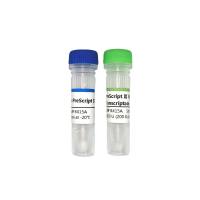Pituitary tumor transforming gene is an important gene which is involved in many cellular functions including cell division, DNA repair, organ development, expression, and secretion of various angiogenic and metastatic factors. Overexpression of this gene has also been reported in many cancers. Understanding the molecular pathways induced by this oncogene is therefore important not only to understand the development of the disease but also for proper diagnosis and treatment. Gene profiling is an excellent tool to identify the genetic mechanisms, networks, and pathways associated with a particular disease. Oligo-nucleotide microarrays can be everybody’s choice as a first step to identify the global expression of genes involved in the study of interest. Each technique has its own limitation. Therefore, further confirmation of the results with a different technique is always necessary. Quantitative real-time reverse-transcriptase polymerase chain reaction (qRT-PCR) is one of the widely used and best described techniques to confirm the microarray data. Here, we describe the qRT-PCR techniques for gene profiling studies and the methods used for the analysis of the output data for further studies.






